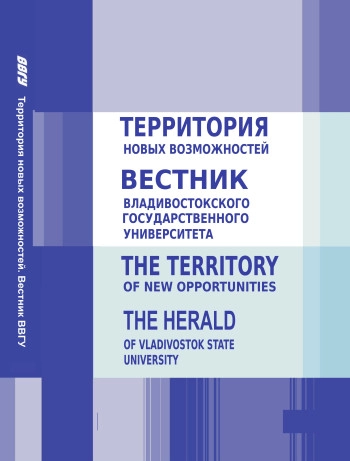employee from 01.01.2006 until now
Russian Federation
from 01.01.2019 until now
Herzen State Pedagogical University of Russia
from 01.01.2020 until now
Russian Federation
Artificial Intelligence (AI) technologies are confidently entering the educational sphere, transforming traditional approaches to learning and opening new opportunities for students and educators. This article presents the results of a survey on students' perceptions of AI and its application in the educational process. A total of 104 students from three Russian cities participated in the survey. The survey results demonstrated a high level of interest among students in using AI, especially for automating routine tasks, searching for information, and developing educational materials. At the same time, the participants emphasized the importance of understanding AI's limitations and maintaining a critical approach to its outcomes, which is becoming a key element of digital literacy. The presence of students from a pedagogical university among the respondents allowed the study to reveal not only general attitudes toward AI but also the specific expectations of future educators. These students expressed their vision of how AI can simplify teachers' work by performing standard tasks such as grading homework, creating tests, and designing presentations. One of the key findings of the study is the recognition of working with language models as a significant cross-professional skill essential for preparing for future careers. Understanding AI capabilities helps students adapt to the digital educational environment and use modern technologies to enhance the effectiveness of learning and teaching. Thus, the integration of AI in education creates new opportunities for personalized learning and the development of students’ creative abilities, while also presenting challenges related to the need for ethical guidelines, digital competence, and critical thinking.
artificial intelligence, digitalization of education, educational process, neural net- works, language models.
1. Artificial intelligence: a threat or a bright future? URL: https://wciom.ru/analyticalreviews/analiticheskii-obzor/iskusstvennyi-intellekt-ugroza-ili-svetloe-budushchee
2. Kovaleva N.N. Problems and prospects of using artificial intelligence in the unified state healthcare information system. Bulletin of the Saratov State Law Academy. 2024; 3 (158): 95–102.
3. Shevchenko L.M. The use of artificial intelligence technologies in the educational process of vocational education institutions: problems and prospects. Education and problems of social development. 2024; 4 (29): 34–39.
4. The National AI Development Strategy for the period up to 2030 was approved by Decree of the President of the Russian Federation dated 10.10.2019 No. 490. URL: https://ai.gov.ru/national-strategy/
5. VTSIOM: The introduction of artificial intelligence into business has doubled. URL: https://rg.ru/2024/12/12/vciom-vnedrenie-iskusstvennogo-intellekta-v-biznes-vyroslo-v-dva-raza.html
6. Pavlyuk E.S. Analysis of foreign experience of the influence of artificial intelligence on the educational process in higher education institutions. Modern pedagogical education. 2020; (1): 65–72.
7. Itinson K.S. On the Impact of Artificial Intelligence on the Sphere of Modern Education. Azimuth of scientific research: pedagogy and psychology. 2021; 1 (34): 299–301.
8. Endovitsky D.A. University Science and Education in the Context of Artificial Intelligence. Higher Education in Russia. 2021; (6): 121–131.
9. Vovk E.V. Artificial intelligence and digital pedagogy as a trend in the modern educational environment of higher educational institutions Problems of modern pedagogical education. 2022; (77-2): 84–86.
10. Subbotina M.V. Artificial intelligence and higher education – enemies or allies. Bulletin of the Peoples' Friendship University of Russia. Series: Sociology. 2024; (1): 176–183.
11. Lyz N.A. Artificial intelligence systems in support of student learning and development. Pedagogy of Computer Science. 2023; (1-2): 48–59.
12. Artemova Yu.V. Teaching speaking to students of non-linguistic specialties using artificial intelligence technologies. Bulletin of Tver State University. Series: Pedagogy and Psychology. 2024; 2 (67): 207–215.
13. Lapina V.Yu. Artificial Intelligence in Teaching Foreign Languages International Journal of Humanities and Natural Sciences. 2023; 10-1 (85).
14. Arzyutova S.N. Using chatgpt in teaching English. Humanitarian research. Pedagogy and psychology. 2023; (16): 37–45.
15. Working with AI and creativity: VK Education named skills of the year. URL: https://vk.company/ru/press/releases/11943/





